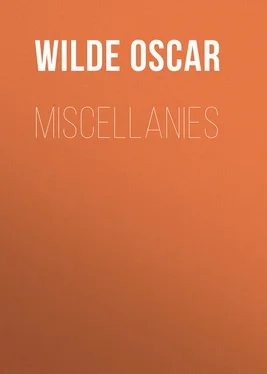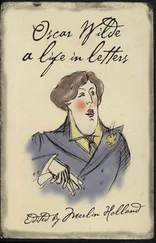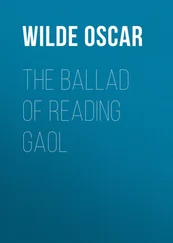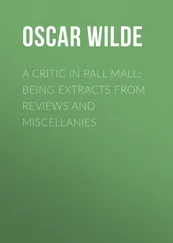Oscar Wilde - Miscellanies
Здесь есть возможность читать онлайн «Oscar Wilde - Miscellanies» — ознакомительный отрывок электронной книги совершенно бесплатно, а после прочтения отрывка купить полную версию. В некоторых случаях можно слушать аудио, скачать через торрент в формате fb2 и присутствует краткое содержание. Жанр: literature_19, foreign_prose, на английском языке. Описание произведения, (предисловие) а так же отзывы посетителей доступны на портале библиотеки ЛибКат.
- Название:Miscellanies
- Автор:
- Жанр:
- Год:неизвестен
- ISBN:нет данных
- Рейтинг книги:5 / 5. Голосов: 1
-
Избранное:Добавить в избранное
- Отзывы:
-
Ваша оценка:
- 100
- 1
- 2
- 3
- 4
- 5
Miscellanies: краткое содержание, описание и аннотация
Предлагаем к чтению аннотацию, описание, краткое содержание или предисловие (зависит от того, что написал сам автор книги «Miscellanies»). Если вы не нашли необходимую информацию о книге — напишите в комментариях, мы постараемся отыскать её.
Miscellanies — читать онлайн ознакомительный отрывок
Ниже представлен текст книги, разбитый по страницам. Система сохранения места последней прочитанной страницы, позволяет с удобством читать онлайн бесплатно книгу «Miscellanies», без необходимости каждый раз заново искать на чём Вы остановились. Поставьте закладку, и сможете в любой момент перейти на страницу, на которой закончили чтение.
Интервал:
Закладка:
Oscar Wilde
Miscellanies
DEDICATION: TO WALTER LEDGER
Since these volumes are sure of a place in your marvellous library I trust that with your unrivalled knowledge of the various editions of Wilde you may not detect any grievous error whether of taste or type , of omission or commission. But should you do so you must blame the editor , and not those who so patiently assisted him , the proof readers , the printers , or the publishers. Some day , however , I look forward to your bibliography of the author , in which you will be at liberty to criticise my capacity for anything except regard and friendship for yourself . — Sincerely yours,
ROBERT ROSS
May 25, 1908.
INTRODUCTION
The concluding volume of any collected edition is unavoidably fragmentary and desultory. And if this particular volume is no exception to a general tendency, it presents points of view in the author’s literary career which may have escaped his greatest admirers and detractors. The wide range of his knowledge and interests is more apparent than in some of his finished work.
What I believed to be only the fragment of an essay on Historical Criticism was already in the press, when accidentally I came across the remaining portions, in Wilde’s own handwriting; it is now complete though unhappily divided in this edition. 1 1 See Lord Arthur Savile’s Crime and other Prose Pieces in this edition, page 223.
Any doubt as to its authenticity, quite apart from the calligraphy, would vanish on reading such a characteristic passage as the following: – ‘.. For, it was in vain that the middle ages strove to guard the buried spirit of progress. When the dawn of the Greek spirit arose, the sepulchre was empty, the grave clothes laid aside. Humanity had risen from the dead.’ It was only Wilde who could contrive a literary conceit of that description; but readers will observe with different feelings, according to their temperament, that he never followed up the particular trend of thought developed in the essay. It is indeed more the work of the Berkeley Gold Medallist at Dublin, or the brilliant young Magdalen Demy than of the dramatist who was to write Salomé . The composition belongs to his Oxford days when he was the unsuccessful competitor for the Chancellor’s English Essay Prize. Perhaps Magdalen, which has never forgiven herself for nurturing the author of Ravenna , may be felicitated on having escaped the further intolerable honour that she might have suffered by seeing crowned again with paltry academic parsley the most highly gifted of all her children in the last century. Compared with the crude criticism on The Grosvenor Gallery (one of the earliest of Wilde’s published prose writings), Historical Criticism is singularly advanced and mature. Apart from his mere scholarship Wilde developed his literary and dramatic talent slowly. He told me that he was never regarded as a particularly precocious or clever youth. Indeed many old family friends and contemporary journalists maintain sturdily that the talent of his elder brother William was much more remarkable. In this opinion they are fortified, appropriately enough, by the late Clement Scott. I record this interesting view because it symbolises the familiar phenomenon that those nearest the mountain cannot appreciate its height.
The exiguous fragment of La Sainte Courtisane is the next unpublished work of importance. At the time of Wilde’s trial the nearly completed drama was entrusted to Mrs. Leverson, who in 1897 went to Paris on purpose to restore it to the author. Wilde immediately left the manuscript in a cab. A few days later he laughingly informed me of the loss, and added that a cab was a very proper place for it. I have explained elsewhere that he looked on his plays with disdain in his last years, though he was always full of schemes for writing others. All my attempts to recover the lost work failed. The passages here reprinted are from some odd leaves of a first draft. The play is of course not unlike Salome , though it was written in English. It expanded Wilde’s favourite theory that when you convert some one to an idea, you lose your faith in it; the same motive runs through Mr. W. H . Honorius the hermit, so far as I recollect the story, falls in love with the courtesan who has come to tempt him, and he reveals to her the secret of the Love of God. She immediately becomes a Christian, and is murdered by robbers; Honorius the hermit goes back to Alexandria to pursue a life of pleasure. Two other similar plays Wilde invented in prison, Ahab and Isabel and Pharaoh ; he would never write them down, though often importuned to do so. Pharaoh was intensely dramatic and perhaps more original than any of the group. None of these works must be confused with the manuscripts stolen from 16 Tite Street in 1895 – namely the enlarged version of Mr. W. H ., the completed form of A Florentine Tragedy , and The Duchess of Padua (which existing in a prompt copy was of less importance than the others); nor with The Cardinal of Arragon , the manuscript of which I never saw. I scarcely think it ever existed, though Wilde used to recite proposed passages for it.
In regard to printing the lectures I have felt some diffidence: the majority of them were delivered from notes, and the same lectures were repeated in different towns in England and America. The reports of them in the papers are never trustworthy; they are often grotesque travesties, like the reports of after-dinner speeches in the London press of today. I have included only those lectures of which I possess or could obtain manuscript.
The aim of this edition has been completeness; and it is complete so far as human effort can make it; but besides the lost manuscripts there must be buried in the contemporary press many anonymous reviews which I have failed to identify. The remaining contents of this book do not call for further comment, other than a reminder that Wilde would hardly have consented to their republication. But owing to the number of anonymous works wrongly attributed to him, chiefly in America, and spurious works published in his name, I found it necessary to violate the laws of friendship by rejecting nothing I knew to be authentic. It will be seen on reference to the letters on The Ethics of Journalism that Wilde’s name appearing at the end of poems and articles was not always a proof of authenticity even in his lifetime.
Of the few letters Wilde wrote to the press, those addressed to Whistler I have included with greater misgiving than anything else in this volume. They do not seem to me more amusing than those to which they were the intended rejoinders. But the dates are significant. Wilde was at one time always accused of plagiarising his ideas and his epigrams from Whistler, especially those with which he decorated his lectures, the accusation being brought by Whistler himself and his various disciples. It should be noted that all the works by which Wilde is known throughout Europe were written after the two friends quarrelled. That Wilde derived a great deal from the older man goes without saying, just as he derived much in a greater degree from Pater, Ruskin, Arnold and Burne-Jones. Yet the tedious attempt to recognise in every jest of his some original by Whistler induces the criticism that it seems a pity the great painter did not get them off on the public before he was forestalled. Reluctance from an appeal to publicity was never a weakness in either of the men. Some of Wilde’s more frequently quoted sayings were made at the Old Bailey (though their provenance is often forgotten) or on his death-bed.
Читать дальшеИнтервал:
Закладка:
Похожие книги на «Miscellanies»
Представляем Вашему вниманию похожие книги на «Miscellanies» списком для выбора. Мы отобрали схожую по названию и смыслу литературу в надежде предоставить читателям больше вариантов отыскать новые, интересные, ещё непрочитанные произведения.
Обсуждение, отзывы о книге «Miscellanies» и просто собственные мнения читателей. Оставьте ваши комментарии, напишите, что Вы думаете о произведении, его смысле или главных героях. Укажите что конкретно понравилось, а что нет, и почему Вы так считаете.












